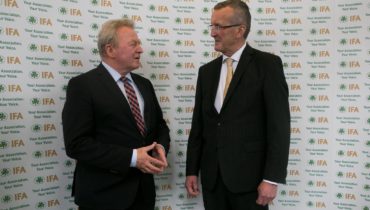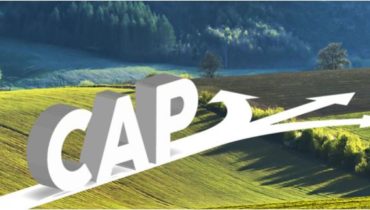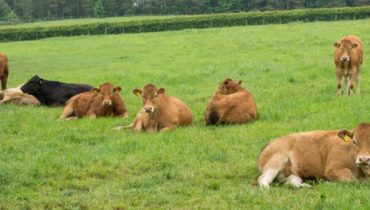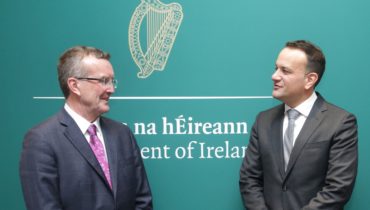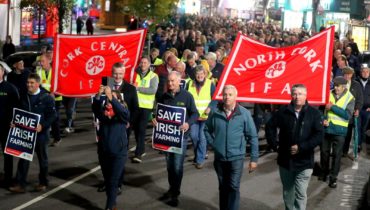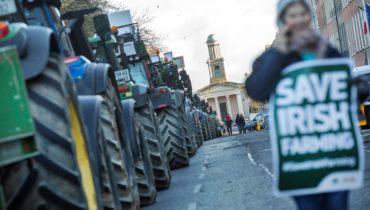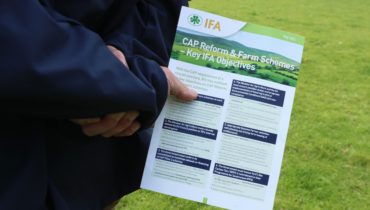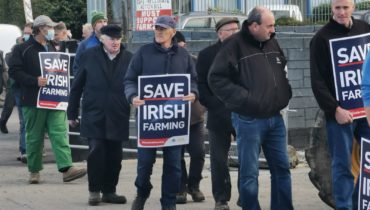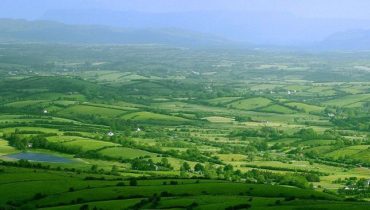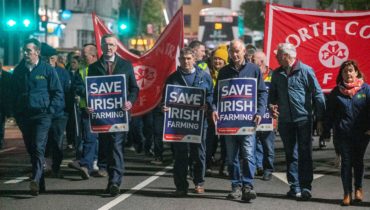Common Agricultural Policy (CAP)

IFA engages with all European political institutions and organisations to ensure strong representation of Irish farmers’ interests in the Common Agricultural Policy (CAP).
Discussions on the next CAP (post-2020) are ongoing. IFA’s position is that an overall improvement in farm income levels is necessary through direct support; targeted measures for investment and efficiency; generational renewal; and the strengthening of farmers’ position in the food supply chain.
Making CAP Post-2020 Work for You
The new CAP is one of the most crucial issues facing farmers. With initial proposals on the shape of CAP post–2020 published, your IFA representatives are working at home and in Brussels to seek an increase in the CAP Budget and a programme that works for farmers.
Political action is needed – and you can help
Lobby your politicians – you can download our lobby document arguing for an increased CAP Budget and be prepared to talk to your TDs, Senators and MEPs.
An increased CAP budget is crucial
To address the gap between farm incomes and incomes in other sectors, farmers need a rise in their Basic Payment and other payments from an increased CAP Budget.
To secure an increase in payments, we need an increase in the CAP Budget.
IFA is seeking that the CAP Budget is increased to cover the cost of inflation and to pay for any additional requirements placed on farmers.
Member State Contributions to the EU Budget must be increased.
The EU has aspirations to fund new policy priorities in the areas of defence and migration. IFA is clear that any new EU measures must involve new funding and cannot impact on the CAP Budget.
An increased CAP Budget is needed to:
- reflect the recovery and growth in the European economy;
- take account of inflation and of increased requirements on farmers;
- reflect the higher costs of production on EU farms as a result of the requirement to maintain higher standards – CAP must protect the family farm structure from unsustainable world prices.
IFA is opposed to any proposals on convergence between countries that would involve a reduction in the national envelope for Ireland.
A strong CAP Pillar 1 (direct payments) and Pillar II (Rural Development Programme) structure is necessary, including national co-financing for the RDP
- Vulnerable sectors including sucklers and sheep need targeted payments
- Direct payments must go to active farmers, based on objective criteria – agricultural production and provision of public goods
- Well-funded market management/support mechanisms are needed for sectors subject to price volatility
Direct payments cannot be diluted by charges and fees
- IFA is seeking an agri-environment scheme with the potential to draw down up to €10,000
- Farmers with designated lands where restrictions apply need higher payments
- ANCs must be adequately resourced, with full restoration of funding. The 2019 review must ensure all areas are protected and payment rates reflect the natural constraint
- Strong farm investment programme is necessary across all sectors and to drive efficiency and competitiveness
Young farmers and new entrants to farming must be encouraged and supported – a National Reserve and Young Farmer Top Up must be key elements of CAP 2020
CAP must assist farmers who wish to retire and national taxation and social protection policy should support generational renewal.
- The political commitment to deliver real simplification at farm level is essential and must be implemented in CAP 2020
- The complexity and negative impact of requirements such as greening in the tillage sector must be avoided
- The proposed new delivery model must simplify and reduce the burden of cross-compliance and the inspection regime at farm level.
- A close-out approach on inspections is needed to allow farmers to rectify non-compliance issues without penalty
- All inspections should be limited to 1% with 14 days advance notice and no duplication by state agencies.
About the CAP
The Common Agricultural Policy (CAP) was the first building block in establishing the ‘Common Market’ which over time has been transformed into the EU we have today. Over the years, the CAP has been fundamentally reformed, from a system based primarily on price and market supports to a decoupled direct payment system.
The key elements of the current CAP Programme 2014 – 2020 include:
- A Basic Payment applied at farm level on the basis of the new internal convergence model with variable greening which will involve some re-distribution of the Basic Payment on a phased basis;
- 2% of the Basic Payment will be allocated to young farmers to provide a 25% top-up, and an allocation of 3% for the National Reserve. Farmers with low payments will be moved up to a minimum of 60% of the national average;
- An agri-environment scheme (GLAS) with a payment of up to €5,000 per annum for 50,000 farmers;
- A new Suckler payment (Beef Data and Genomics Programme) worth €52m per annum;
- A Capital Investment Programme (TAMS) for all sectors to cover infrastructure and equipment, and supporting on-farm efficiency and expansion, particularly in the context of the abolition of dairy quotas;
- €195m funding for Disadvantaged Areas, to be known as Areas of Natural Constraint (ANC);
- A coupled payment for protein crops;
- A Sheep Grassland Payment of €13m incorporated into the Basic Payment to top-up sheep farmers’ payments.

